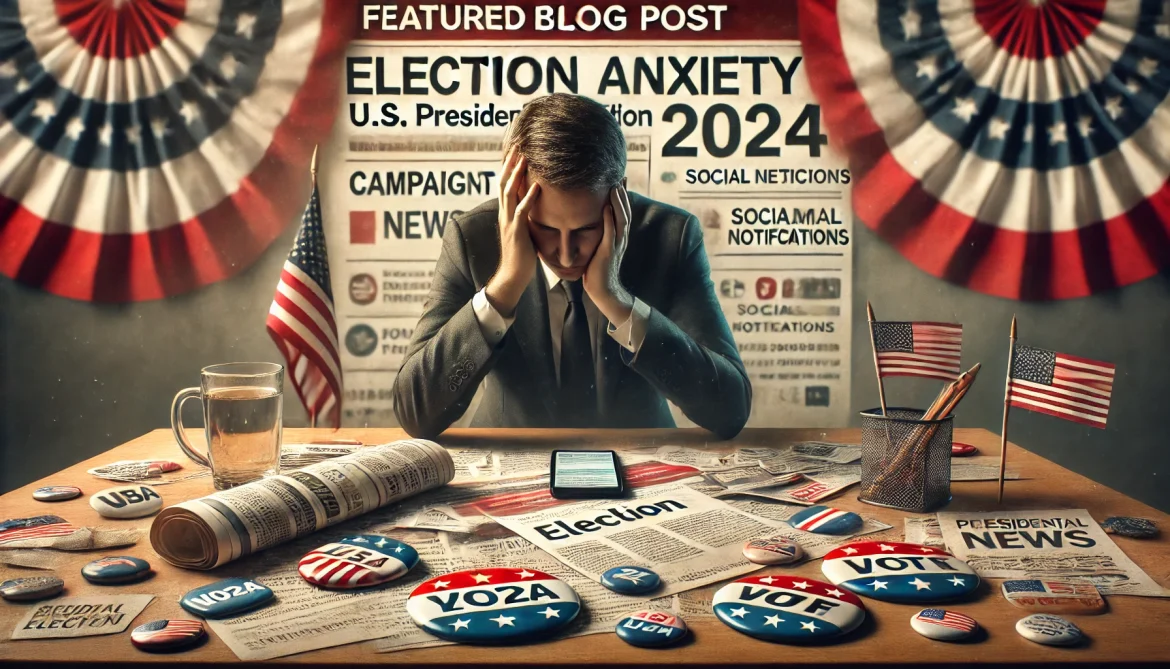As the 2024 U.S. presidential election looms closer, a new wave of election-related anxiety is sweeping the nation. Stress levels surrounding the election have reached unprecedented levels, even surpassing those seen in the contentious 2016 race. Recent data highlights that Americans are experiencing heightened anxiety, fueled by political division, economic uncertainties, and social media amplification.
The American Psychological Association (APA) recently released a study revealing that 69% of American adults now view the upcoming presidential election as a significant source of stress. This marks a steep increase in election-related anxiety compared to past election cycles, especially among younger voters and those who actively engage with news and social media. According to board-certified psychiatrist Dr. Sue Varma, who spoke on CBS News, this mounting stress can have substantial impacts on mental health, manifesting in symptoms ranging from heightened irritability to difficulty sleeping.
Dr. Varma explains that constant exposure to election news and political discourse can lead to “doomscrolling,” where individuals continuously consume distressing news without a break. “The polarization and high stakes are causing people to feel like they’re always on edge,” Varma says. She emphasizes that feelings of powerlessness, combined with concerns about the future direction of the country, contribute heavily to these stress levels.
The 2024 election climate also brings a significant mental health challenge, affecting people’s personal relationships, daily routines, and work productivity. Social media, in particular, is intensifying the situation, as political debates and misinformation circulate widely, often leading to online conflicts and misunderstandings. For many, the division within the country feels personal and inescapable.
In response to this growing issue, mental health professionals are advising several coping strategies. Marie Saavedra of CBS News recently provided a “Mental Health Minute” segment to help individuals manage their stress. Key recommendations include:
- Limit Media Consumption: Saavedra advises setting boundaries around news intake to reduce feelings of being overwhelmed. Taking designated “media-free” time can help people recharge.
- Practice Mindfulness and Self-Care: Practicing relaxation techniques such as deep breathing, meditation, or yoga can alleviate stress. Mindfulness exercises help individuals focus on the present, mitigating anxieties about future uncertainties.
- Engage in Physical Activity: Regular exercise can boost endorphin levels, improving mood and providing a healthy outlet for pent-up energy and anxiety.
- Connect with Supportive People: Spending time with friends, family, or support groups can create a sense of security and reduce feelings of isolation.
- Seek Professional Help if Necessary: For those experiencing significant mental health challenges, professional support from a therapist or psychiatrist can offer tailored strategies for coping with election-related stress.
Dr. Varma echoes these recommendations, underscoring that prioritizing mental health is crucial during high-stress periods. She highlights the importance of “stepping away when necessary and finding constructive ways to stay informed without sacrificing mental well-being.” As Election Day approaches, mental health experts hope these coping strategies will empower individuals to manage stress and maintain a sense of control over their mental health.



